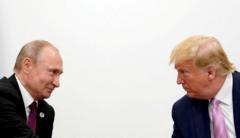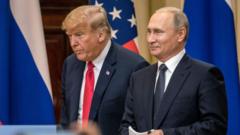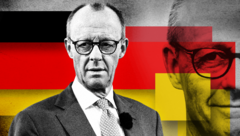Romania's political landscape changes as President Klaus Iohannis resigns due to increasing pressure and controversy surrounding the cancellation of the presidential election, which was marred by allegations of Russian interference. His resignation occurs a day before a scheduled impeachment vote, resulting from accusations of undemocratic behavior and public discontent.
Romanian President Resigns Amid Impeachment Crisis Following Election Controversy

Romanian President Resigns Amid Impeachment Crisis Following Election Controversy
Klaus Iohannis steps down a day before an anticipated impeachment vote over the cancellation of the presidential election, raising concerns about anti-democratic practices.
Following widespread protests and a parliamentary impeachment effort, President Klaus Iohannis announced his resignation on Monday, leading to the ascension of Ilie Bolojan as interim president. The controversy arose from the abrupt cancellation of the scheduled presidential election amid allegations of foreign meddling, primarily associated with Russian influence. Critics argue that Iohannis's decision to remain in office until the new election slated for May was unconstitutional, as it was perceived as an attempt to maintain power rather than ensure political stability.
Last December, Romania's constitutional court annulled the upcoming presidential election based on dubious claims of foreign intervention and manipulation, specifically citing nearly 800 TikTok accounts believed to be linked to Russian influence surrounding a far-right candidate. Iohannis faced mounting protests from tens of thousands of Romanians who viewed his actions as a betrayal of democratic principles. The backlash against his presidency intensified, culminating in a parliamentary inquiry that sought to suspend him.
Defending his actions, Iohannis claimed that he did not violate the constitution and stepped down to prevent further crises in the nation. He warned that his removal could have detrimental effects on Romania's international reputation and alliances within the EU and NATO. Meanwhile, as the political atmosphere shifts, the focus turns to the upcoming re-run of the election, where far-right candidate Calin Georgescu appears to gain momentum due to Iohannis's departure.
With upcoming elections on the horizon, political analysts predict significant shifts in Romania's political dynamics and potential gains for both far-right and liberal factions. The protest narrative against Iohannis emphasizes a call for accountability in leadership and re-establishing trust in the electoral process, particularly in a region increasingly vigilant against foreign influence and internal division.
Last December, Romania's constitutional court annulled the upcoming presidential election based on dubious claims of foreign intervention and manipulation, specifically citing nearly 800 TikTok accounts believed to be linked to Russian influence surrounding a far-right candidate. Iohannis faced mounting protests from tens of thousands of Romanians who viewed his actions as a betrayal of democratic principles. The backlash against his presidency intensified, culminating in a parliamentary inquiry that sought to suspend him.
Defending his actions, Iohannis claimed that he did not violate the constitution and stepped down to prevent further crises in the nation. He warned that his removal could have detrimental effects on Romania's international reputation and alliances within the EU and NATO. Meanwhile, as the political atmosphere shifts, the focus turns to the upcoming re-run of the election, where far-right candidate Calin Georgescu appears to gain momentum due to Iohannis's departure.
With upcoming elections on the horizon, political analysts predict significant shifts in Romania's political dynamics and potential gains for both far-right and liberal factions. The protest narrative against Iohannis emphasizes a call for accountability in leadership and re-establishing trust in the electoral process, particularly in a region increasingly vigilant against foreign influence and internal division.






















